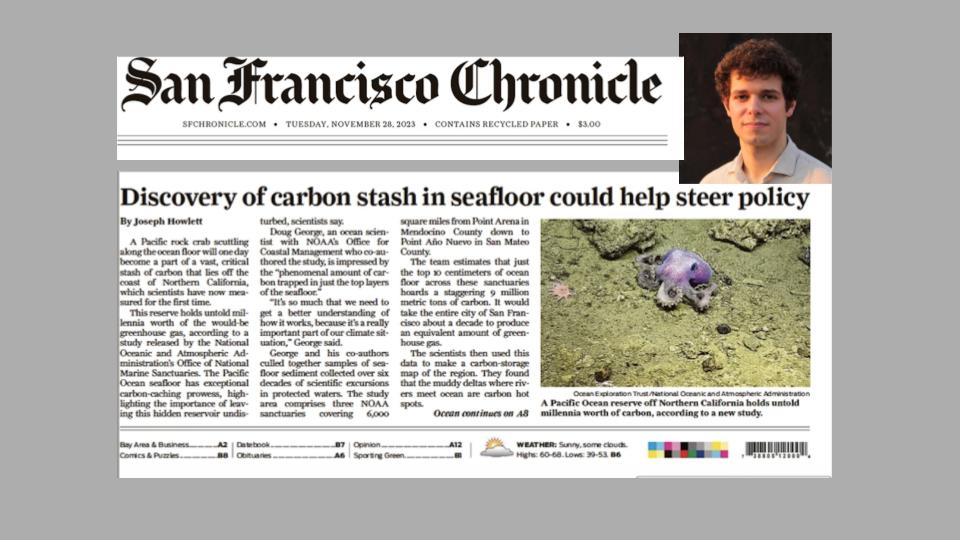This year, thanks to support from The Brinson Foundation, CASW expanded its long-running Taylor/Blakeslee graduate fellowship program by adding an enhanced award for a science writing student interested in covering the physical sciences. The fellow is mentored by a seasoned journalist and receives travel support in addition to the $6,000 academic fellowship.
The first physical sciences Taylor/Blakeslee fellowship went to Joseph Howlett, who started a master’s degree in science communication at the University of California Santa Cruz this fall, fresh off a postdoctoral research position in physics at Stanford University. His mentor is Dennis Overbye, an award-winning physics writer with the enviable job title of cosmic affairs correspondent for The New York Times.
In November, CASW caught up with Howlett to see how his program is going so far.
CASW: How has the fellowship helped you as you’ve started your master’s program?
Joe Howlett: Changing careers is a whirlwind. All support is really welcome as I go back to school—something I never thought I’d do—and the fellowship is a big chunk of support. Besides cushioning the financial blow, the vote of confidence from CASW is a constant reminder that someone out there thinks what I’m trying to do is somehow important, and that I’m good at it.
CASW: What has your experience with your mentor been like?
JH: Dennis has been excellent. It’s surreal to be at such an early point in my career and get to talk face-to-face with someone whose stories inspired me to take this leap in the first place. He’s a fountain of knowledge about what makes a good science story, and that’s fed right into the stories I’m working on for class. His support has already been indispensable.
CASW: Are there any stories or projects you’re working on that you’re particularly excited about?
JH: I wrote a
news story about a NOAA report quantifying the carbon sequestered in Northern California’s ocean floor. It just ran on the front page of the
San Francisco Chronicle on Nov. 28! It’s my first byline in print, so it was really exciting for me.
CASW: What are your current plans for the rest of your program and beyond?
JH: I want to be a science journalist! Hopefully from the moment the program ends in June, which is scarily soon. That’s why the fellowship is huge—it gives me the resources for more exciting reporting to get my name on the map, and Dennis’ advice as I figure out what’s next.
The Taylor/Blakeslee fellowships, underwritten by The Brinson Foundation of Chicago, are the only national fellowships supporting graduate study in science writing. Applications for the 2024-25 fellowships will be accepted from January to mid-March 2024.
